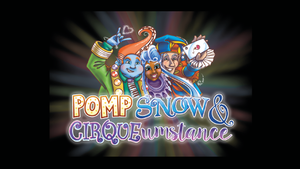Virtual Reality-2016’s Hottest Entertainment Licensing Trend
In my previous blog in October, I discussed trends in licensing to watch and focused particularly on digital technology. In this month’s column, I want to focus on Virtual Reality (VR) technology, as it will have a major impact on the licensing industry and is just arriving at retail for Holiday 2015 and Q1 2016.
April 6, 2018

Steven Ekstract, publisher, License! Global |
In my previous blog in October, I discussed trends in licensing to watch and focused particularly on digital technology. In this month’s column, I want to focus on Virtual Reality (VR) technology, as it will have a major impact on the licensing industry and is just arriving at retail for Holiday 2015 and Q1 2016.
Virtual Reality has been around for decades and there have been a number of prototypes over the years, but it was simply too expensive and too imperfect to market to consumers. Now, the technology is advanced enough to create a VR headset that can actually transport the wearer into a virtual 3D world (and at price points that make it feasible for the retail marketplace). As a result, we are about to experience a revolution in visualization that will have significant impact on and permanently change our lives and how we interact in the world. You are probably reading this and thinking, he is being melodramatic, but trust me, I have seen the future and it is VR.
The Gartner Group, a leading global technology research organization, estimates that 25 million VR headsets will be sold in the next two years. The pace of adoption will be slower than mobile has been, but will be just as significant if not greater.
How will VR impact licensing? It will do so in a number of ways. First and foremost, it will initially come into the consumer market as an entertainment device. Video Game play is the first retail market that VR will impact in a major way; it will soon be followed by VR films, TV, Music and Sports. The wearer can be in a movie theater and virtually be in the action taking place on the screen, the same goes for a Football match, a concert and one’s favorite TV show. The emotional impact these experiences will have on the user will drive the licensed products business as well as create many new licensing opportunities. Just imagine the shopping experience consumers will have with VR. Immersed in a 3D virtual retail store and able to experience products in the store in the first person.
The Current Lineup of VR Headsets:
Oculus Rift from Facebook
Oculus Rift is currently considered the industry leader in VR. The company was purchased by Facebook in 2012 for U.S. $2 billion and has since made great strides in product development. The one caveat is that when The Oculus Rift VR is released, it will need a heavy duty PC (costing £660 to run the VR software). Smartly, Facebook has teamed up with Microsoft to release an Xbox controller with the Oculus Rift. But initially in early 2016, because of the heavy duty PC needed to run Oculus Rift, we can expect it will be an early adapter hardcore gamer’s device. Oculus Rift is also providing the software technology to outside companies to develop content.
HTC Vive
A competing technology from HTC (a Taiwanese multinational smart phone and tablet maker) and the company VALVE that owns STEAM (a popular PC gaming platform). This VR platform is designed specifically for PC Gaming on STEAM, which has a huge following.
Playstation VR
Originally called Project Morpheus by Sony, the ‘project” has now morphed into reality….Virtual Reality in the form of Playstation VR. Designed specifically for PS4 Console Game play, the Playstation VR was being demonstrated at Brand Licensing Europe in October and it is simply breathtaking in its virtual reality. Because Sony also has its own film studio and TV production studios and the built in fan base of PS4, they have a significant competitive edge when it comes to developing content for Playstation VR.
 Other Players
Other Players
Microsoft Hololens- This uses Holographic technology which differs from the augmented reality of the other VR technology. It has been in development for a long time, but Microsoft may be arriving a bit late to the VR game. What they do have going for them is a huge base of Xbox fans.
Samsung Gear VR is the first VR Headset on the market (released last month) its limitations are that it can only be used with a Samsung Galaxy S6 or Note 5 device, but it is low cost (£65) and portability makes it easily accessible. It also has Samsung’s deep pockets and significant global mobile device market share behind it.
Finally, there is Google Cardboard- This is Google’s low cost entry in VR, which is a cut and fold cardboard headset that integrates with any android phone and the “Cardboard” app. Again, this is an open sourced technology, which allows anyone the ability to develop content for the Google Cardboard.
What does this mean for Licensing?
Expect VR to revolutionize Video Game Play and create an even larger fan base of new users who will form even more emotional attachment to gaming content. Additionally, we will see films, TV, music and sports produced for VR, again making a much more immersive, emotional experience for viewers. All of this will translate into more consumer demand for licensed consumer products. Think interactive toys and licensed products from games that interact with the VR software. Skylanders and Disney’s “Toys to Life” was a precursor to what VR will create. And this is just the beginning. As VR develops, every possible product category will be influenced. So, whether you are an IP owner, a licensee, a promotional partner or a retailer, VR represents huge opportunities for your business.
Read more about:
Steven EkstractYou May Also Like








